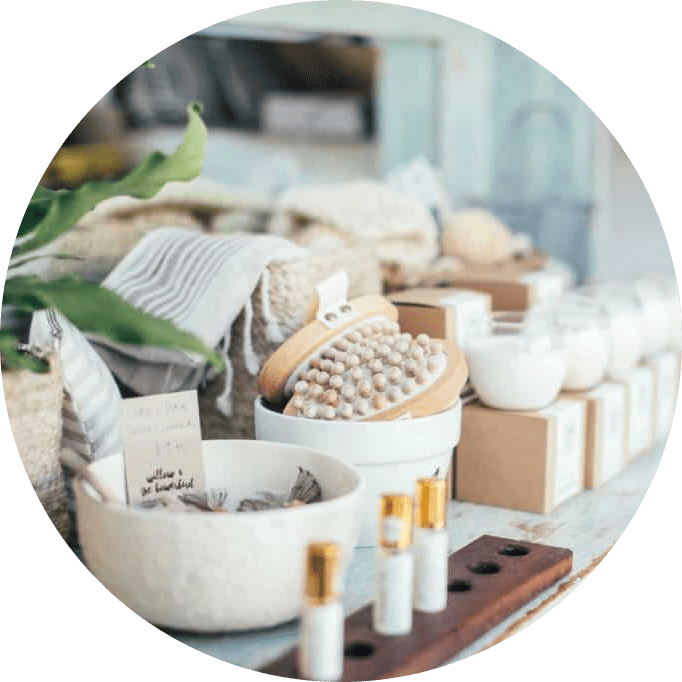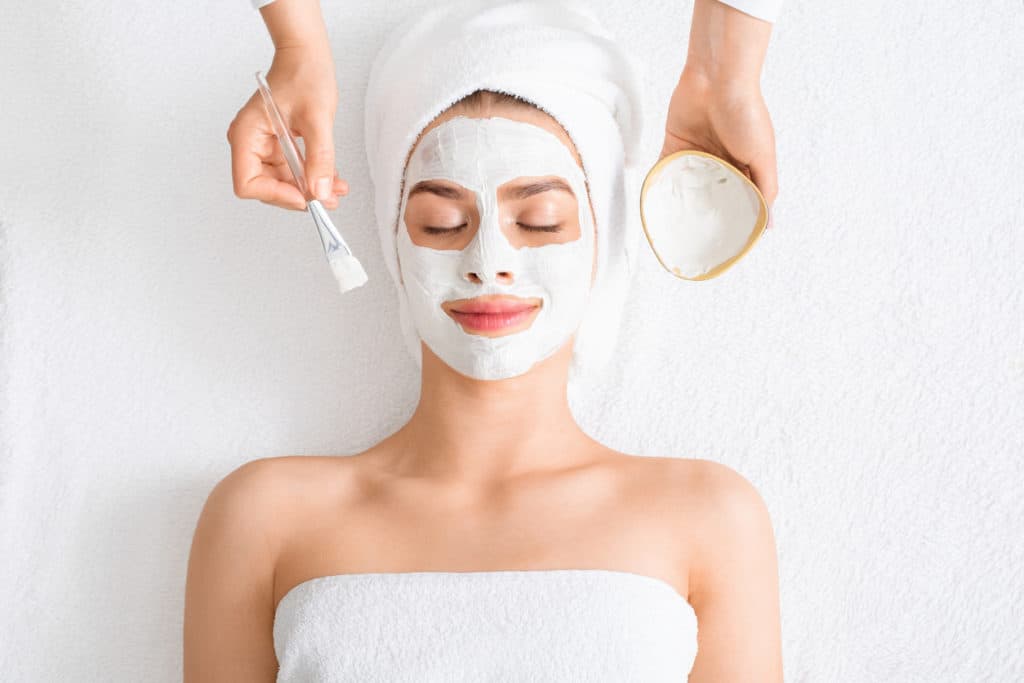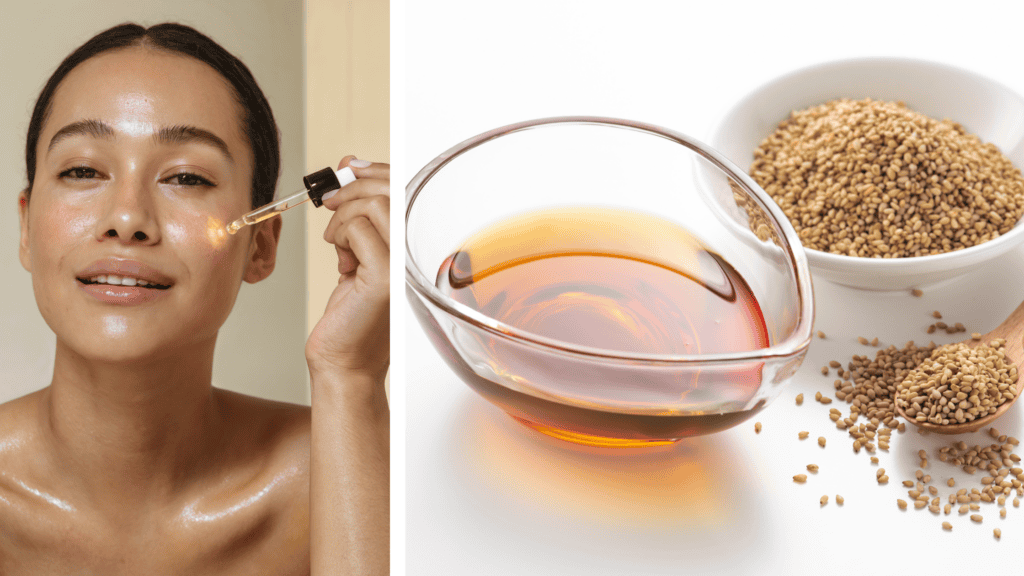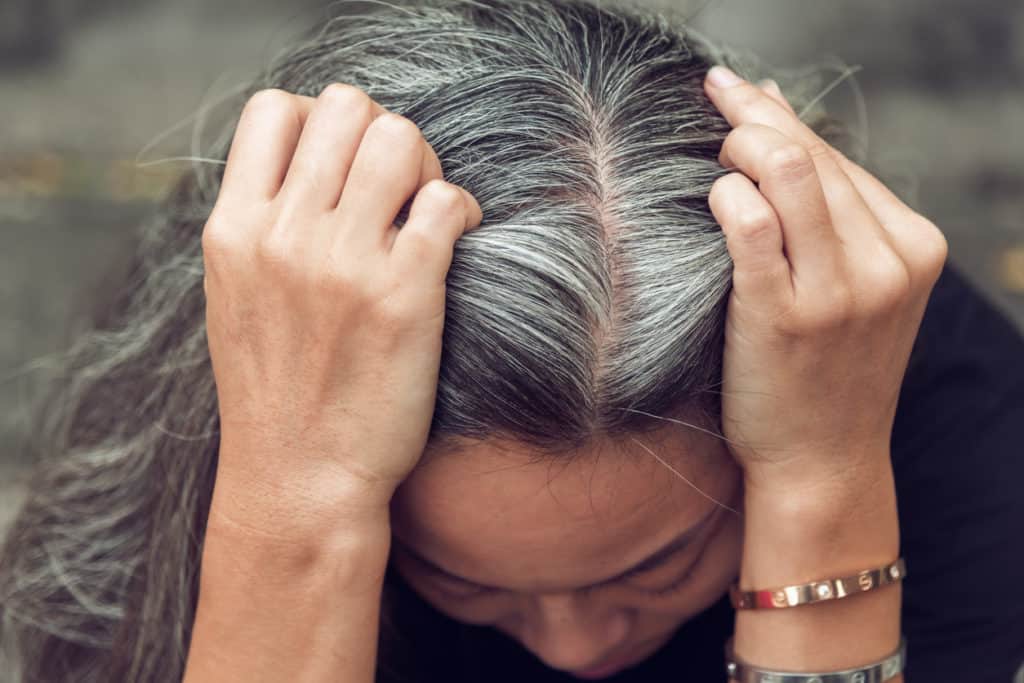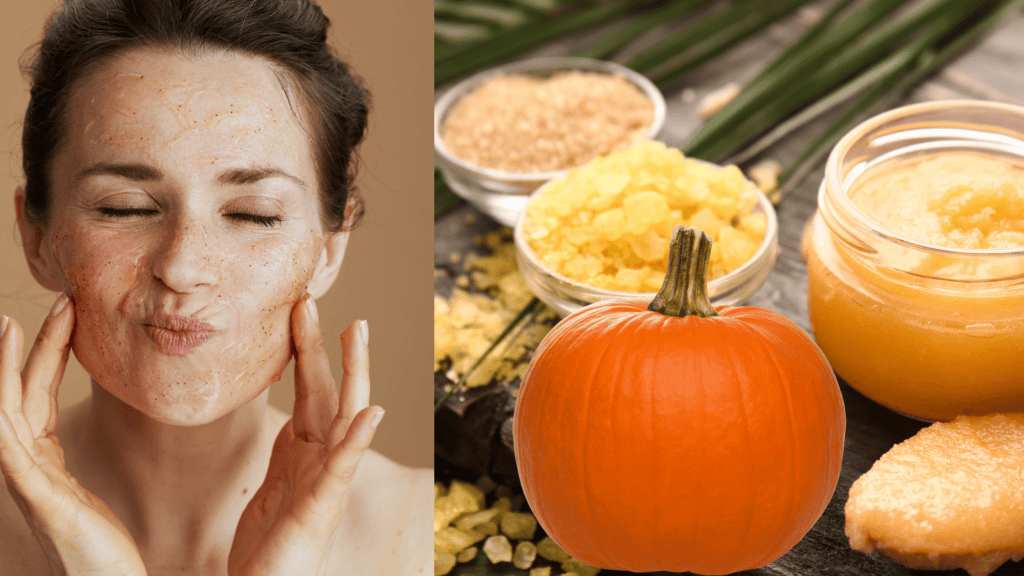If you suffer from pimples, blemishes, the occasional spot, or acne, try this skin-healing Bentonite clay face mask recipe! Bentonite clay is a highly beneficial ingredient for problematic skin care. It is simple to use and a natural element that can be added to DIY clay recipes for cleansing and moisturizing the skin.
Bentonite clay is a soothing treatment for acne due to its beneficial properties; it is a natural, readily available ingredient that is minimally processed and gentle on the skin.
Swelling in water, Bentonite clay is highly absorbent. It attaches to toxins and impurities, like dirt and oil, gently clarifying the skin and removing the bacteria that can cause acne and other skin issues.
Bentonite clay has been used for centuries to cleanse, treat, and heal various skin conditions. Cleopatra used clay in her beauty routines to keep her skin hydrated and nourished!
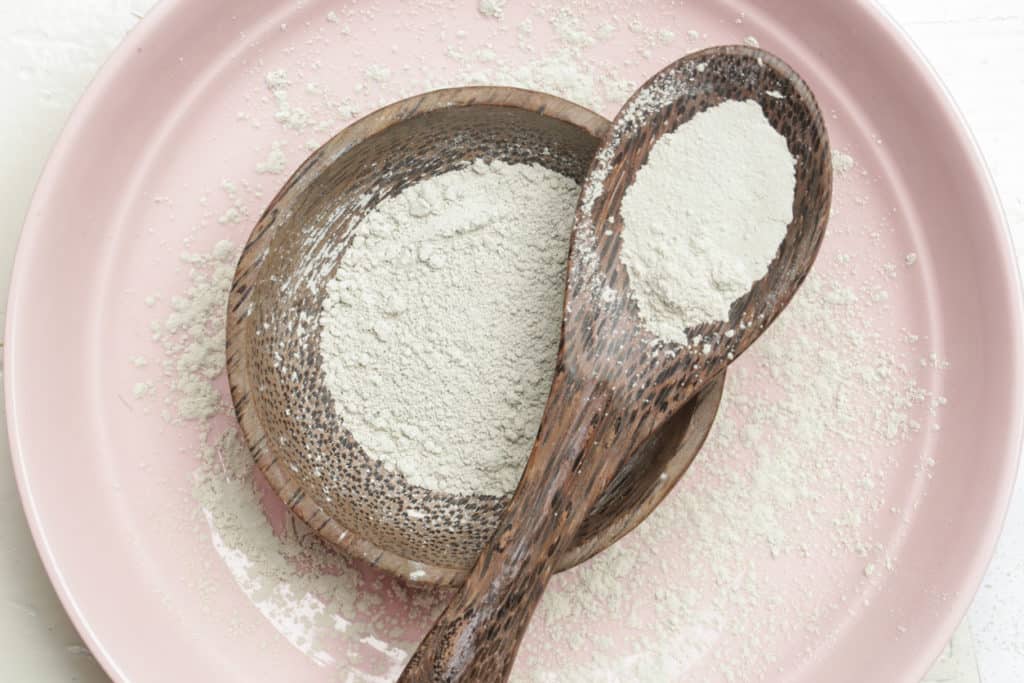
What is Bentonite Clay?
Bentonite Clay is a highly absorbent clay named after Fort Benton, Montana, where clay is abundant due to the numerous volcanoes. The clay is exceedingly abundant and has many uses for the body, internally and externally.
Soils, volcanic deposits, and silicate rocks exposed to the elements over thousands of years produce different types of clay depending on the ground’s natural resources and various weather and climate conditions. A wide variety of minerals are deposited together.
Bentonite clay is a Montmorillonite clay with around 75 minerals highly beneficial to the skin. The most common minerals in clay deposits are silicates, iron, aluminum hydrous oxide, and mica.
Buy Bentonite Clay* for its fantastic ability to profoundly cleanse and calm the skin. It helps treat oily, pimpled skin conditions by gently binding to debris and absorbing excess oil, making it an ideal ingredient for a DIY face mask!
Recipe For Bentonite Clay And Hempseed Oil Face Mask!
This soothing DIY face mask recipe is great for acne-prone or problem skin! Use once a week for great results.
Read this post for other natural ingredients that help target acne, and experiment with making other DIY face masks!
Ingredients.
- 2 TBSP Bentonite Clay*
- 2 TBSP Filtered Water
- 1/2 TSP Hemp Seed Oil*
- 1-2 drops of Tea Tree* Essential Oil
- 1-2 drops of Manuka* Essential Oil
Method.
- Mix Filtered water into the Bentonite Clay. You may use more or less water, depending on your preferred consistency.
- Add a few Tea Tree Essential Oil drops* and Manuka Essential Oil.
- Add 1/2 TSP of Hempseed Oil.
- Blend to a smooth paste.
- Apply to the face in circular movements. You can use your fingers or a flat brush.
- Leave on the face for ten to fifteen minutes.
- Rinse off gently. Applying a warm, damp cloth to your face may help the process.
Have fun experimenting with different types of clay mask recipes.
Beneficial Ingredients for acne-prone skin!
While you can simply mix Bentonite clay with water or a flower hydrosol, like rosewater, which has many beauty uses, it’s great to add other beneficial ingredients to DIY face masks to boost their power!
Hempseed Oil.
It may seem odd to treat acne skin conditions with oils, but that is often precisely what the skin needs to balance its oil production. Hempseed oil is an excellent non-comedogenic oil for problem skin conditions, and adding it to homemade face masks for acne-prone skin can treat, soothe, and help heal the skin.
If possible, buy hemp seed oil* that is cold-pressed and organic, and read this post about its incredible skincare benefits!
Keep Hemp Seed Oil refrigerated after opening.
Tea Tree Oil.
Research shows that the beneficial skin-healing properties of Tea Tree oil make it highly effective for treating skin plagued by acne and blemishes, making it an excellent oil for DIY face mask recipes targeting this skin concern.
Buy Tea Tree oil*. It is excellent for dabbing on the occasional spot or breakout, but if you find it drying because of your particular skin type, adding a few drops to a DIY face mask is one of the best ways to use it, as the other ingredients buffer the astringent nature of tea tree oil!
For more information on the incredible beauty uses of Tea tree oil, read this post!
Manuka Essential Oil.
Manuka essential oil* is an incredible essential oil for acne-prone skin. While less well known than tea tree oil, it is gentler on the skin, has a lesser medicinal smell, and has skincare benefits similar to those of Manuka honey.
If Tea Tree Oil is too potent for your sensitive skin, buy Manuka Oil*. This oil is fantastic also as a spot treatment but, again, excellent for your face mask recipes!
Always dilute essential oils in a carrier oil, such as Jojoba Oil, before applying them to the skin or adding them to masks or face creams.
Read this post on the benefits of Manuka oil for sensitive skin!
Acne can be difficult and distressing to treat, and if it is severe, always consult a doctor or dermatologist. Natural ingredients can help soothe skin without harsher chemicals, but get medical advice where necessary.
Try these other clay face mask recipes or this DIY face mask recipe using activated charcoal to help clear up and maintain problem skin!
This post contains affiliate links marked with a *. If you purchase through these links, we may earn a small commission, not affecting your sale.
Glowitgreen.com is a member of the Amazon affiliate link program.
